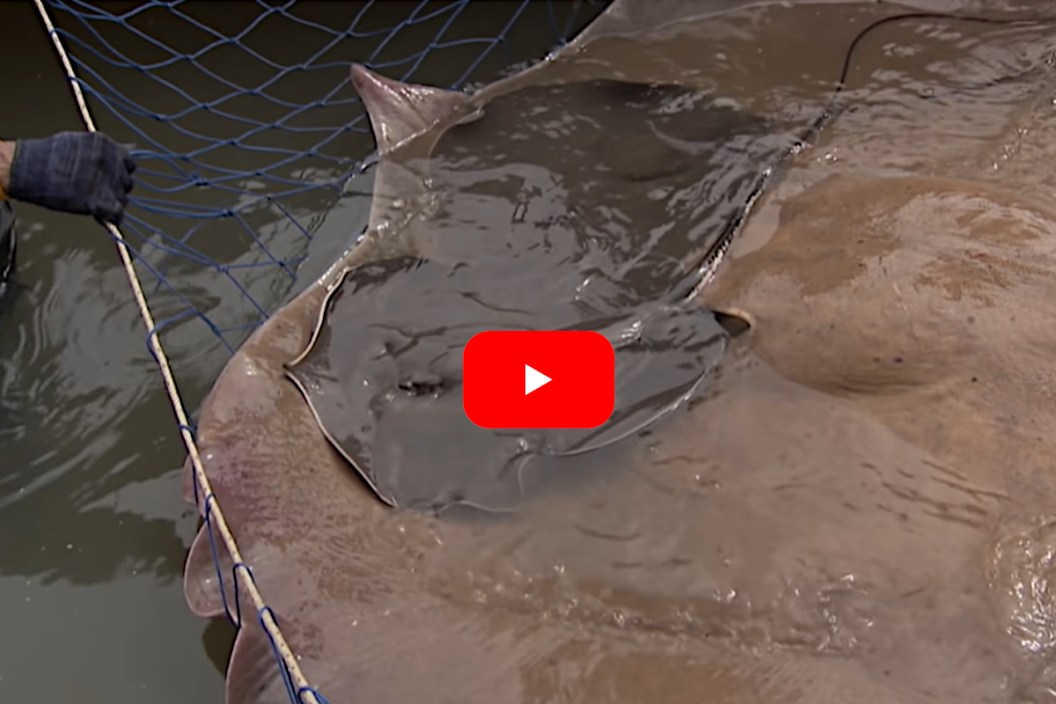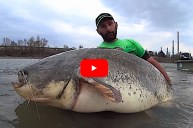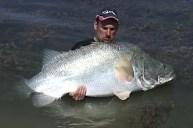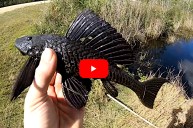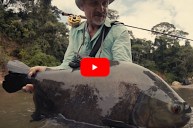This giant freshwater stingray gave Jeremy Wade quite the surprise.
Jeremy Wade knows his river monsters and one of the more obscure ones he has tangled with is the giant freshwater stingray or Urogymnus polylepis as it is known by its scientific name. It is a species many anglers do not even know exists because it is critically endangered and isolated to river basin fisheries mostly in Southeast Asia.
When Jeremy hooks into this massive fish, it hugs the river bottom closely and drags not one but two boats full of people downstream on Thailand's Mekong River. When it finally surfaces, they discover it is nearly six feet across and weighs upwards of 400 pounds.
Not only is this one of the largest freshwater fish Wade has ever tangled with, she has an extra surprise to deliver in the net as the researchers examine the huge catch.
This amazing catch of such a rare species of stingray makes for an amazing story. Were there not video to accompany it, we would have a hard time believing such an amazing experience. The giant freshwater stingray has been on the IUCN red list for endangered species. Mostly because of overfishing, but habitat loss has played a large role too. Especially in Thailand and Cambodia, which is why the work of the researchers is so critical. It helps for better management of the river systems these rays call home.
While the population has been shrinking, this can still be found in many Thai rivers including the Mae Klong River, Tapi River, Bang Pakong, and more. It is also found in parts of Indonesia and Malaysia. Stingrays are also common in Borneo.
Much like a catfish, this animal spends most of its life on the river bottom, feeding on crustaceans, clams, and other invertebrates. Unlike other species of ray that are normally associated with saltwater, this one seems to spend its entire life in brackish freshwater rivers and streams. The ray still has the telltale stinger and whip-like tail that most saltwater anglers are familiar with though.
Thanks to Jeremy's catch, we imagine the scientists gathered some vital data that they can hopefully use to help manage and maintain this species for future generations to enjoy.
For more outdoor content from Travis Smola, be sure to follow him on Twitter and check out his Geocaching and Outdoors with Travis YouTube channels.
NEXT: PETA IS NOW GOING AFTER FISHERMEN
WATCH
